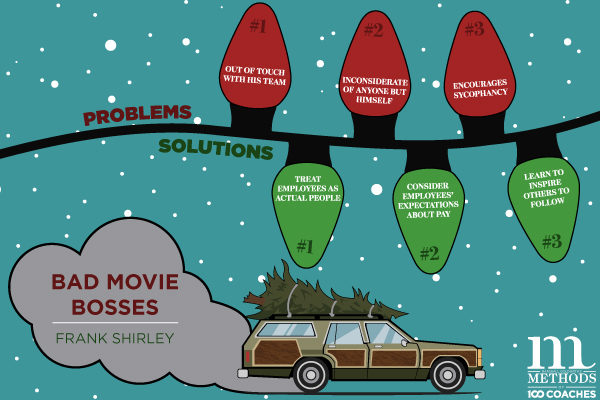The Importance of Emotional Courage
If you’re willing to feel everything, you can do anything. Emotional courage, the willingness to feel uncomfortable emotions and feelings, is key to being productive and feeling fulfilled in both the workplace and in life.
Most often, it is our unwillingness to feel negative emotions that holds us back. On the surface, it may seem like external factors prevent us from accomplishing our goals, however, if we dig deep enough, we can trace the root cause of most of our problems to our unwillingness to feel negative emotions.
Here is what I mean. Let’s say, for example, that your boss gives you the option of leading an important presentation at work. However, you convince yourself that your coworkers are better than you at public speaking than you, and that you already have enough things on your plate. As a result, you decide to pass up this opportunity. Now imagine that you knew, without a doubt, that the presentation would go smoothly, you would impress your boss, and, as a result, would be put in the running for that promotion you’ve been eyeballing. Would you volunteer for that presentation now? You probably would, right? In this new situation, the competence of your coworkers hasn’t changed and you’d still have the same workload. Therefore, these couldn’t actually be the real reasons you wanted to pass up the opportunity.
Your unwillingness to feel unpleasant emotions, i.e. your lack of emotional courage, is what held you back in this hypothetical. The uncertainty, fear, and vulnerability of speaking in front of your peers and superiors, the shame and embarrassment of making a mistake, the disappointment you might have felt if your audience was unimpressed by the presentation. In this hypothetical, wanting to avoid these negative feelings drove your behavior and limited your decision making.
If you have underdeveloped emotional courage, then you are self-imposing strict limitations on yourself that prevent you from living your best life. The road to accomplishment is riddled with bad feelings, and if you’re lacking emotional courage, you’ll never even start down this path. When you’re willing to feel everything, however, you’re able to do anything.
Opening Up to Negative Emotions is Beneficial
Contrary to what many people think, opening yourself up to feelings of anger, pain, resentment, anxiety, and other negative emotions is more likely to prevent destructive behaviors. In fact, resisting these negative emotions actually increases your chances of acting in a way that you might later regret.
Unacknowledged emotions can simmer underneath the surface and eventually erupt under pressure. Imagine a coworker makes an off-putting remark that offends you and makes you feel uncomfortable. Rather than acknowledging and embracing those feelings, you just smile and nod. As a result, your next interaction with this coworker is tinged with feelings of resentment which affects your mood, professional relationship, and your productivity. Worse still, your coworker is blissfully unaware that her behavior has unsettled you, and therefore continues to act and say things that exacerbate your feelings of discomfort and resentment towards her. Eventually, this climaxes in an outburst of rude and harsh criticism of your co worker for the entire office to see.
If you feel emotional pressure building up, you may need to release it. In order to do this without causing damage to ourselves or others, best-selling author and leadership coach, Peter Bregman, recommends releasing the pressure on your own terms. When you’re in a safe place, let it all out. Maybe you scream and curse, maybe you write down all of your negative thoughts and then delete them, or maybe you fire punches into your pillow that is shaped suspiciously like the head of your unpleasant coworker.
Don’t Let Emotions Control You
Now you may be thinking, “What if I don’t repress my initial feeling of discomfort the first time my coworker offends me? Won’t that mean that I’ll immediately respond in a regretful manner?” Not necessarily. It is possible to feel and embrace negative emotions and actually benefit from them without letting them affect your behavior in a negative way. This can be done using a three-step process.
Notice the Feeling
Think of a situation that has recently caused you to feel frustrated. Maybe your boss rejected your request for a vacation, or perhaps a friend cancelled plans on you so they could hang out with a different crowd. Take a minute to imagine that situation as vividly as possible and watch the feeling of frustration arise. Notice what feelings are arising within you.
Observe the Feeling
Carefully observe what these feelings are like. What are the physiological reactions in this instance of frustration? Do you feel the heat in your upper body or tightness in your chest? Observing the feeling not only helps you better understand the emotion, it also puts space between you and the emotion.
When you don’t notice and observe a powerful emotion, it consumes you. As a result, instead of just noticing and observing the feeling of frustration, you become frustrated, and this emotions dictate your behavior, and will cause you to act in ways that you later regret.
Embrace the Feeling
Noticing and observing your emotions puts space between you and them. Instead of being frustrated, you simply notice and observe the sensations associated when frustrations arise and, eventually, fade away.
In this space, there is freedom for you to embrace your emotions. Freedom to feel your experience your emotions vividly, but not be controlled by them, freedom to act how you want to act regardless of what emotion you’re feeling. Soon you’ll begin to realize that while we can’t always control what emotions we feel, we always have the option to control how we react to them.
Strengthen Emotional Courage by Feeling
This may all sound abstract, but if you try noticing, observing, and embracing your emotions yourself, these concepts will concretize in your mind. Start small and be forgiving with yourself. You won’t notice every emotion before it influences your behavior, and even when you do, it may be too powerful for you to initially observe and embrace dispassionately.
Our ability to embrace uncomfortable emotions, our emotional courage, is like a muscle which can be trained through practice. You wouldn’t try to bench press 300lbs your first time at the gym would you? So you shouldn’t begin by trying to embrace the most difficult and powerful emotions without building your emotional courage muscle first.
Let’s take temptation, for example. How can you strengthen your willingness to experience the uncomfortable emotions associated with resisting temptation? Well, if you have a bad habit of checking your phone too often or before bed, try staring at it, without picking it up. As the discomfort and compulsion to pick up your phone arises, just notice and observe it, don’t react to it. What, physiologically, does this discomfort feel like? Embrace these feelings and recognize that you are not a slave to them. You might even notice that these feelings really aren’t bad at all and don’t have to control your behavior. The more you practice noticing, observing, and embracing difficult emotions, the easier and more natural it becomes. In other words, you increase your tolerance to feeling negative emotions by actually feeling them.
By familiarizing yourself with your emotions, it will become easier to notice, observe, and embrace them in the future. A tool to help you do this is emotional heat maps, which involve mapping out on the body how specific emotions make you feel.
Once you begin paying closer attention to emotions in this way, you might come across some valuable insights. For instance, are fear and excitement really much different? They actually feel almost identical, it is only context that causes us to define these two emotions differently. By breaking down emotions into their physiological constituents, they can become a lot less intimidating and more manageable.
Unwillingness to feel uncomfortable emotions is almost always what holds us back. Fortunately, you can train yourself to embrace uncomfortable emotions and prevent them from controlling your behavior. If you’re willing to feel everything, you can do anything! To learn more about this and similar concepts, consider taking Peter Bregman’s course on emotional courage.





